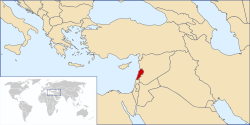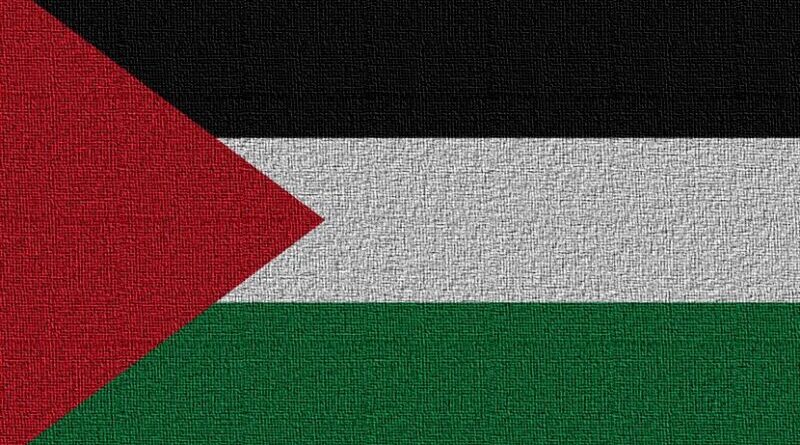Will The Al-Nusrah Front Announce An Islamic Emirate For Yarmouk Palestinian Camp? – OpEd
Perhaps the next time this observer responds to a request from a graduate student somewhere who writes to him seeking help with research for a Masters or Doctoral thesis on the subject of Palestinian refugees In Lebanon and Syria and the effects of the current crisis in Syria on their lives, I will propose the following:
Go to some store like Sears, Target or Sports Authority (I started to write Wal-Mart—but realized that my friend and eminent authority on Zionism and the Question of Palestine, Jeff Blankfort would shout at me via email as he did when I mentioned a couple of years ago something about wanting him to send me a really cheap camera from them) and purchase a small decent quality tent on sale. Then buy three pair of full body thermal underwear and come right away to Lebanon.

We will arrange for the student to camp out on the Syrian or Lebanese side of the border at Maznaa for around ten days and conduct in depth interviews of some of the 500,000 Syrian and 126,000 Palestinian refugees who have fled the crisis—and some of those who are forced to return. The latter sometimes being denied admission to Lebanon because they are not be able to pay the 25,000LL ($ 17) per refugee “admission tax” charged at the border by Lebanese General Security. For those who do get in, Palestinians must pay an additional LL50,000 ($ 33) per person for a one-month extension.
The sociological-political data base here is full and ripe for documentation and analysis and the friendly but often bored border guys will cooperate. And currently, the students can advise their university administrations and thesis advisors, the Maznaa border crossing is safe and according to the border guards given the freezing temperatures the snakes and scorpions have, for the most part, slithered down deep.
While Syria and Lebanon have a longstanding agreement that allows their citizens to cross the border without a visa, it is not being applied, as before, to Palestinians. Some families, especially larger ones, face a real cash outlay burden. On 1/2/12 this observer met three Palestinian women who with their young children actually walked across the border at Maznaa from Yarmouk camp, about 40 kilometers away. Among them, they had 12 children-two babies and ten who were approximately between the ages of 4-9. Their total “tax bill” was LL 300,000 ($200) and that unexpected sum left them essentially penniless. Moreover, assurances on the Syrian side of the border to the contrary notwithstanding, there is currently no UN relief agencies or NGO’s on the Lebanese side to help the desperate arrivals.
A researcher might conclude that what is needed also at Maznaa is for someone to set up a soup kitchen because many refugees are arriving very hungry. Some of the relatively few cars heading into Syria these days, including the one this observer was riding in, are filled with cheap Lebanese bread that returning Palestinians or Syrians have purchased in Lebanon for their families inside Syria where bread is getting rather expensive and on some days even hard to come by due to the shortage of flour and destruction of some bakeries. Some of the drivers will hand out a plastic bag of bread or two for those arriving in need.
When this observer bought five manouche (a kind of cheese pizza), from the only nearby shop, for five little ones at the Maznaa crossing—and began to distribute them—suddenly around ten more refugee youngsters appeared from among the border chaos and ravished the manouches– bizarrely reminding one of piranhas attacking a fat chicken fed to them in the Amazon.
The issue of Palestinian refugees from Syria remains very much a political issue this New Years in Lebanon with one government minister, an ally of Hezbollah, declaring again this week that “We have warned of an influx of refugees since the number was 7,000. Today, they [refugees] have become over 170,000.” He insisted that “the refugee problem should not be addressed under the pretext of humanitarian concerns. We in the Cabinet will stand in the defense of Lebanon’s right in terms of what is best for it.”
To his great credit, Hasan Nasrallah, Sec-Gen. of Hezbollah appeared to rebuke this gentleman, his own party’s close political ally and insisted on behalf of Hezbollah that the Palestinian and Syrian refugees must be dealt with in a humanitarian manner and he rejected the idea of closing the border to them. One Hezbollah official advised this observer that Hezbollah believes all border fees for the fleeing refugees should be waived, and added that “we should deal with the presence of the refugees in a purely humanitarian manner and not politicize it.” Nasrallah added that “Syrian and Palestinians families should be taken care of by the Lebanese government, whether they are with the opposition or the regime or in between… the Lebanese should embrace those immigrant families in their homes and public places despite the difficult economic conditions they suffer.”
Some fleeing Palestinians refugees at the Maznaa crossing mention that they fear that al-Qaeda affiliates are taking over Yarmouk camp and want to establish an Islamic emirate.
With a long-time Palestinian friend, I visited the camp this morning and inquired. Contrary to some of the many rumors regarding late breaking developments in Damascus, Syrian army units guarding the main entrance to Yarmouk camp and patrolling the adjacent areas are not preventing Americans and other foreigners from entering. They simply warn them not to enter but do not block them or arrest them. Certain parts of the large camp, more like a large urban neighborhood, divided along Yarmouk and Palestine streets, appear quite safe.
But there are sections of Yarmouk where the Al Nusra Front is very much in control and are actively setting up social service centers and training bases for arriving recruits from a number of countries as well as, regrettably, some Palestinians. The latter I was advised are mostly unemployed, school dropouts, or perhaps under the sway of a fiery salafist sheik who gives sermons on the virtues of jihad. The recruits are receiving a weapon, some training and cash and “religious instruction” wherein they are falsely instructed that the Holy Koran demands of them to liberate Yarmouk from non-believers including those who are not Sunni, and to establish in the liberated areas an Islamic Emirate while dismantling the legacy of Sykes-Picot.
To this latter end, Al Nusra types are currently “cleansing” areas of Yarmouk under their control and attempting to spread into adjoining areas of the camp. As of 1/4/12 there is not much resistance to their activities as the pro-government armed popular committees such as the Popular Front for the Liberation of Palestine-General Command have not returned in significant numbers after fleeing nearly two weeks ago.
Some of the camp inhabitants expect that the Syrian army will enter Yarmouk with massive force in an attempt to expel al Nusra Front and their allies but others are saying that the army is very reluctant to do so because it would be accused of destroying a Palestinian refugee camp.
Still others say that it’s currently a waiting game until the current crisis is resolved and that they will simply avoid the growing jihadist areas of the camp as best they can until the end of the crisis. This observer detected among several he spoke with, that there exists a certain amount of optimism that the crisis will soon be resolved and they are watching these months scheduled US-Russia meeting for signs.
Talking with some of the Syrian soldiers at the entrance to Yarmouk, and asking for their assessments, the query often elicits a terse response to the effect that they are “preparing to secure the area and awaiting orders.”

